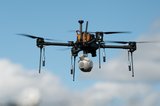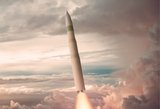Republic simplifies fleet, drops Lynx and Q400s
Republic Airways Holdings has announced it will transition the regional service operated by Lynx Aviation Bombardier Q400 turboprops to Embraer 170 and 190 jet service operated by Republic Airlines.
The company will remove three Q400s from service on 6 April, with another three going on 19 April. In addition, the leases of seven smaller regional jets will be terminated and the aircraft returned to the lessor.
Republic says the transition to jet service will improve its ability to operate in highly contested markets in which the Q400 operates at a competitive disadvantage to jet service offered by competitors. The changeover, including the decision to terminate the leases on its seven remaining CRJ200s operated by Chautauqua, will also support the company's ongoing programme to simplify and optimise its fleet resources across its entire network, improving aircraft utilisation and cost efficiencies company-wide. Republic expects operations at Lynx to be phased out by mid-September.
Service will continue to all current Lynx destinations with the exception of Fargo, ND and Tulsa, OK, where the company will cease operations on 5 April.
These changes will result in the reduction in April of approximately 175 positions at Lynx, including flight crews, operations, customer service and support personnel. Most employees affected by this announcement will have the opportunity to continue with either Republic or Frontier in similar capacities. Employees who choose not to accept a position within the company and who work through their release date will be provided severance.
"Lynx employees have done an outstanding job of providing service to a number of regional communities and have provided important passenger connections to Frontier's network," said Republic executive vice-president and chief operating officer, Wayne Heller. "Unfortunately, after extensive analysis and months of efforts to grow the business, we concluded we could not efficiently operate a fleet of 11 Q400 aircraft. Converting service from the Q400 fleet to jet service allows us to better utilise our existing aircraft resources and lower our cost of operating and maintaining multiple fleet types, while providing our customers with outstanding jet service.
"These changes will better position the company to sustain the kind of growth we've already begun and that our employees and customers expect as we continue our work to rebuild and expand the Frontier and Midwest networks," added Heller.






















